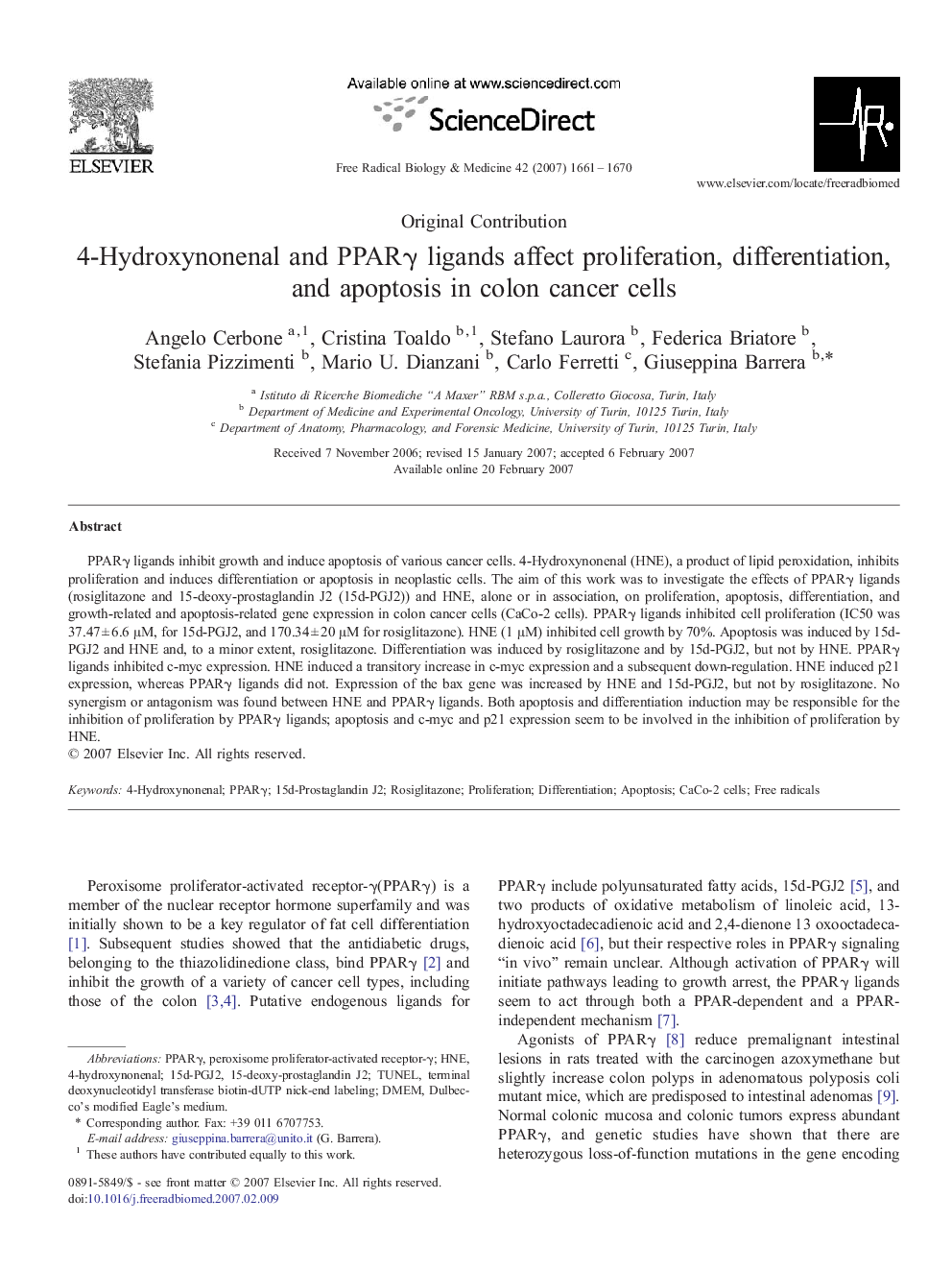| Article ID | Journal | Published Year | Pages | File Type |
|---|---|---|---|---|
| 1911850 | Free Radical Biology and Medicine | 2007 | 10 Pages |
PPARγ ligands inhibit growth and induce apoptosis of various cancer cells. 4-Hydroxynonenal (HNE), a product of lipid peroxidation, inhibits proliferation and induces differentiation or apoptosis in neoplastic cells. The aim of this work was to investigate the effects of PPARγ ligands (rosiglitazone and 15-deoxy-prostaglandin J2 (15d-PGJ2)) and HNE, alone or in association, on proliferation, apoptosis, differentiation, and growth-related and apoptosis-related gene expression in colon cancer cells (CaCo-2 cells). PPARγ ligands inhibited cell proliferation (IC50 was 37.47 ± 6.6 μM, for 15d-PGJ2, and 170.34 ± 20 μM for rosiglitazone). HNE (1 μM) inhibited cell growth by 70%. Apoptosis was induced by 15d-PGJ2 and HNE and, to a minor extent, rosiglitazone. Differentiation was induced by rosiglitazone and by 15d-PGJ2, but not by HNE. PPARγ ligands inhibited c-myc expression. HNE induced a transitory increase in c-myc expression and a subsequent down-regulation. HNE induced p21 expression, whereas PPARγ ligands did not. Expression of the bax gene was increased by HNE and 15d-PGJ2, but not by rosiglitazone. No synergism or antagonism was found between HNE and PPARγ ligands. Both apoptosis and differentiation induction may be responsible for the inhibition of proliferation by PPARγ ligands; apoptosis and c-myc and p21 expression seem to be involved in the inhibition of proliferation by HNE.
